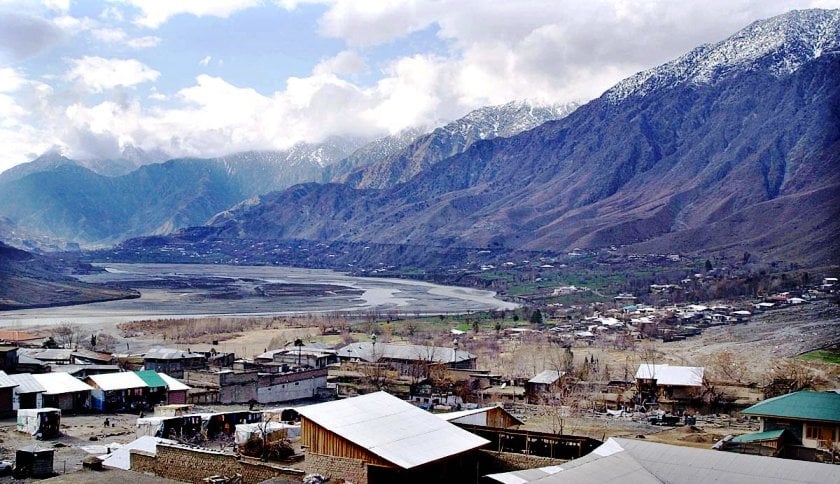Rising Temperatures, Falling Credit Scores: The Home Buyer's Climate Risk

Table of Contents
Increased Insurance Premiums and Denials: A Major Credit Risk
Understanding the Link Between Climate and Insurance
The increased frequency and severity of climate-related events are dramatically altering the insurance landscape. Floods, wildfires, and hurricanes are becoming more common and intense, leading to higher insurance premiums and, in some cases, outright denials of coverage. This creates a significant financial burden for homeowners and can negatively impact their credit scores if premiums become unaffordable or coverage is unavailable.
- Rising flood risk in coastal areas and low-lying regions: Many coastal communities are experiencing unprecedented flooding, resulting in skyrocketing flood insurance premiums or unavailability of coverage.
- Increased wildfire risk in drought-prone areas: Prolonged droughts are fueling larger and more destructive wildfires, leading to higher homeowner's insurance premiums and difficulties in securing coverage.
- Higher windstorm risks in hurricane-prone zones: More powerful hurricanes are causing widespread devastation, leading to substantial increases in windstorm insurance costs and increased scrutiny from insurers.
- Impact of these risks on insurance availability and affordability: The cumulative effect of these climate-related events is making home insurance increasingly expensive and difficult to obtain, particularly in high-risk areas. Failing to secure adequate coverage can lead to financial hardship and damage to credit scores.
For example, in parts of California, wildfire risk has caused premiums to double or even triple in recent years, putting significant strain on household budgets. Similarly, coastal communities in Florida are facing rapidly increasing flood insurance costs, potentially making homeownership unaffordable for many.
Property Value Depreciation Due to Climate Change
The Impact of Climate-Related Damage on Resale Value
Properties located in high-risk areas are increasingly experiencing a decline in value due to the perceived increased risk of climate-related damage. This depreciation can have severe financial consequences for homeowners, impacting their ability to refinance or sell their property.
- Decreased desirability of properties in floodplains or wildfire zones: Buyers are becoming increasingly hesitant to purchase homes in areas prone to flooding or wildfires, reducing the demand and thus the value of these properties.
- Difficulty selling properties damaged by climate-related events: Properties damaged by floods, wildfires, or hurricanes can be difficult and costly to repair, significantly impacting their resale value.
- Long-term impact on property appreciation: The long-term appreciation potential of properties in high-risk areas is significantly diminished due to the ongoing threat of climate-related damage.
Data from real estate markets in areas frequently impacted by climate-related events shows a clear downward trend in property values compared to similar properties in less vulnerable locations. This trend is expected to continue as climate change worsens.
Mortgage Lending and Climate Risk Assessment
Lenders' Growing Awareness of Climate Risk
Lenders are increasingly incorporating climate risk into their mortgage underwriting processes. This means a more thorough assessment of the climate-related risks associated with a property before approving a loan.
- Increased scrutiny of properties in high-risk areas: Lenders are employing more rigorous assessments of properties located in floodplains, wildfire zones, or areas prone to hurricanes.
- Higher interest rates or stricter lending criteria for properties in vulnerable locations: Borrowers seeking mortgages for properties in high-risk areas may face higher interest rates or stricter lending requirements.
- Potential for loan denials based on climate risk assessment: In some cases, lenders may deny mortgage applications altogether for properties deemed to be excessively vulnerable to climate-related risks.
Lenders are using various tools and data sources, including FEMA flood maps, wildfire risk assessments, and climate models, to evaluate the climate risk associated with individual properties. This means borrowers need to be prepared for a more thorough underwriting process.
Mitigation Strategies for Home Buyers
Proactive Steps to Minimize Climate Risk
Potential homebuyers can take proactive steps to minimize their exposure to climate-related financial risks.
- Thoroughly research the climate risk of a potential property: Utilize resources such as FEMA flood maps, wildfire risk assessments, and local climate data to evaluate the risk.
- Obtain multiple insurance quotes and compare coverage: Shop around for insurance and compare coverage options to ensure adequate protection against climate-related events.
- Consider properties with climate-resilient features: Look for properties with features designed to withstand climate-related impacts, such as elevated foundations, fire-resistant materials, or improved drainage systems.
- Understand the implications of climate change on long-term property value: Factor the potential impact of climate change on the long-term appreciation of the property into your investment decision.
By utilizing resources like FEMA's flood maps (www.floodsmart.gov) and consulting with insurance professionals, homebuyers can gain a clearer picture of the climate risks associated with specific properties.
Conclusion
Rising insurance costs, property devaluation, and increased lender scrutiny represent significant financial risks associated with climate change for homebuyers. Understanding and addressing Home Buyer's Climate Risk is no longer optional; it's essential for responsible homeownership. By thoroughly researching climate risks in your desired locations, obtaining multiple insurance quotes, and considering properties with climate-resilient features, you can make informed decisions that protect your financial future. Don't underestimate the impact of climate change on your investment – prioritize understanding your Home Buyer's Climate Risk before making a purchase. Further research into local climate change adaptation plans and engaging with environmental professionals can also provide valuable insights.

Featured Posts
-
 The Goldbergs Exploring The Shows Lasting Popularity
May 21, 2025
The Goldbergs Exploring The Shows Lasting Popularity
May 21, 2025 -
 Nyt Mini Crossword Solutions March 13 2025
May 21, 2025
Nyt Mini Crossword Solutions March 13 2025
May 21, 2025 -
 Vanja Mijatovic Razlozi Za Promenu Imena
May 21, 2025
Vanja Mijatovic Razlozi Za Promenu Imena
May 21, 2025 -
 Alito And Roberts Two Decades On The Supreme Court Bench
May 21, 2025
Alito And Roberts Two Decades On The Supreme Court Bench
May 21, 2025 -
 Occasionverkoop Abn Amro Neemt Sterk Toe Analyse Van De Marktontwikkeling
May 21, 2025
Occasionverkoop Abn Amro Neemt Sterk Toe Analyse Van De Marktontwikkeling
May 21, 2025
Latest Posts
-
 Benjamin Kaellman Maalintekovire Huuhkajien Avuksi
May 21, 2025
Benjamin Kaellman Maalintekovire Huuhkajien Avuksi
May 21, 2025 -
 Kaellmanin Nousu Kentaeltae Ja Sen Ulkopuolelta
May 21, 2025
Kaellmanin Nousu Kentaeltae Ja Sen Ulkopuolelta
May 21, 2025 -
 Benjamin Kaellman Huuhkajien Uusi Taehti
May 21, 2025
Benjamin Kaellman Huuhkajien Uusi Taehti
May 21, 2025 -
 Jalkapallo Jacob Friis Paljastaa Avauskokoonpanon Kamara Ja Pukki Vaihtopelaajina
May 21, 2025
Jalkapallo Jacob Friis Paljastaa Avauskokoonpanon Kamara Ja Pukki Vaihtopelaajina
May 21, 2025 -
 Avauskokoonpano Julkistettu Glen Kamara Ja Teemu Pukki Vaihdossa
May 21, 2025
Avauskokoonpano Julkistettu Glen Kamara Ja Teemu Pukki Vaihdossa
May 21, 2025
